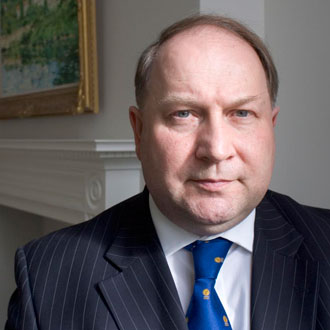GPC enters crucial talks over premises as 40% of GPs say buildings are inadequate

Two out of every five GP practices feel that their premises are inadequate for providing services, the GPC has revealed in advance of crucial talks with NHS England on reinstating funding.
The survey of more than 4,700 GP practices – more than half of the total number across the UK – also found that 62% have been prevented from developing or refurbishing their practices because of a lack of funding, while six out of ten respondents said doctors had to share consulting rooms or hot desk.
The results have been released in advance of crucial round table discussions between GPC, health minister Earl Howe and NHS managers today, which will focus on the review of premises that has seen a freeze on investment in English practices.
The GPC has said that the state of GP premises is beginning to ‘undermine patient care’.
Pulse has previously reported that commissioners in Thurrock, Essex, have said that three quarters of practices in the region are not fit for purpose, but the size of the GPC’s survey suggests the problem is even bigger than had previously been thought.
When asked ‘do you consider your premises to be adequate for the provision of general practice services?’, 39% of GPs said no, while 62% of respondents said they had been ‘prevented from developing or refurbishing premises due to a lack of funding’.
The survey – which Pulse exclusively revealed was being conducted – found that 62% of practices are prevented from conducting onsite staff training or GP education due to lack of space, and that 67% say premises constraints prevent them taking on additional or enhanced services.
Related stories
Dr Peter Holden: GPs cannot offer enough appointments and services without improving premises
Q&A: GP premises, the PropCo and NHS England reimbursements
GP leaders launch major policy drive over premises ‘live crisis’
GPC chair Dr Chaand Nagpaul said the findings put a ‘serious question mark’ over plans to move more care into the community.
Dr Nagpaul said: ‘GP practice buildings in large parts of England are in such a poor state they are beginning to seriously undermine patient care.’
‘Far too many practices have seen no real investment in their buildings in the past ten years leaving them in cramped, unsuitable conditions that are hindering the ability of many to even offer basic general practice services.’
He added: ‘This puts a serious question mark over the Government’s plans to move more care into the community as many GP facilities will not be able to sustain this extra workload.’
GPC premises lead Dr Peter Holden, writing exclusively in Pulse ahead of today’s round table debate, said: ‘What we are seeing is the result of decades of neglect. Many practices were opened in a different age when there were designed to cater for smaller patient populations.’
‘We are now in a changed world where GP services are under pressure from rising patient demand, falling resources and the need for more complicated, intensive treatments for our ageing population.’
‘Time has stood still for GP premises while everything has changed around them.’
Dr Holden added that the meeting today would try and push the need for sustained investment in premises, and general practice more widely.
He added: ‘This will not be an easy battle to win, but the BMA will continue to make it clear that if we want GPs to be able to go on delivering care, they are going to need GP buildings to be brought up to scratch and not left to collapse.’
NHS England committed in March to major reforms of general practice including a ‘value-for-money’ review of practice premises.
But Pulse revealed last month that NHS England were sitting on hundreds of premises improvement applications, which had been log-jammed since the health and social care act reforms last year.
An NHS England spokesperson said: ‘Two thirds of the NHS budget is now controlled by local GPs and like them we want to see more investment in primary care, including modern buildings. At a time when the NHS budget is flat, finding more money for one area will mean making offsetting savings elsewhere.’









